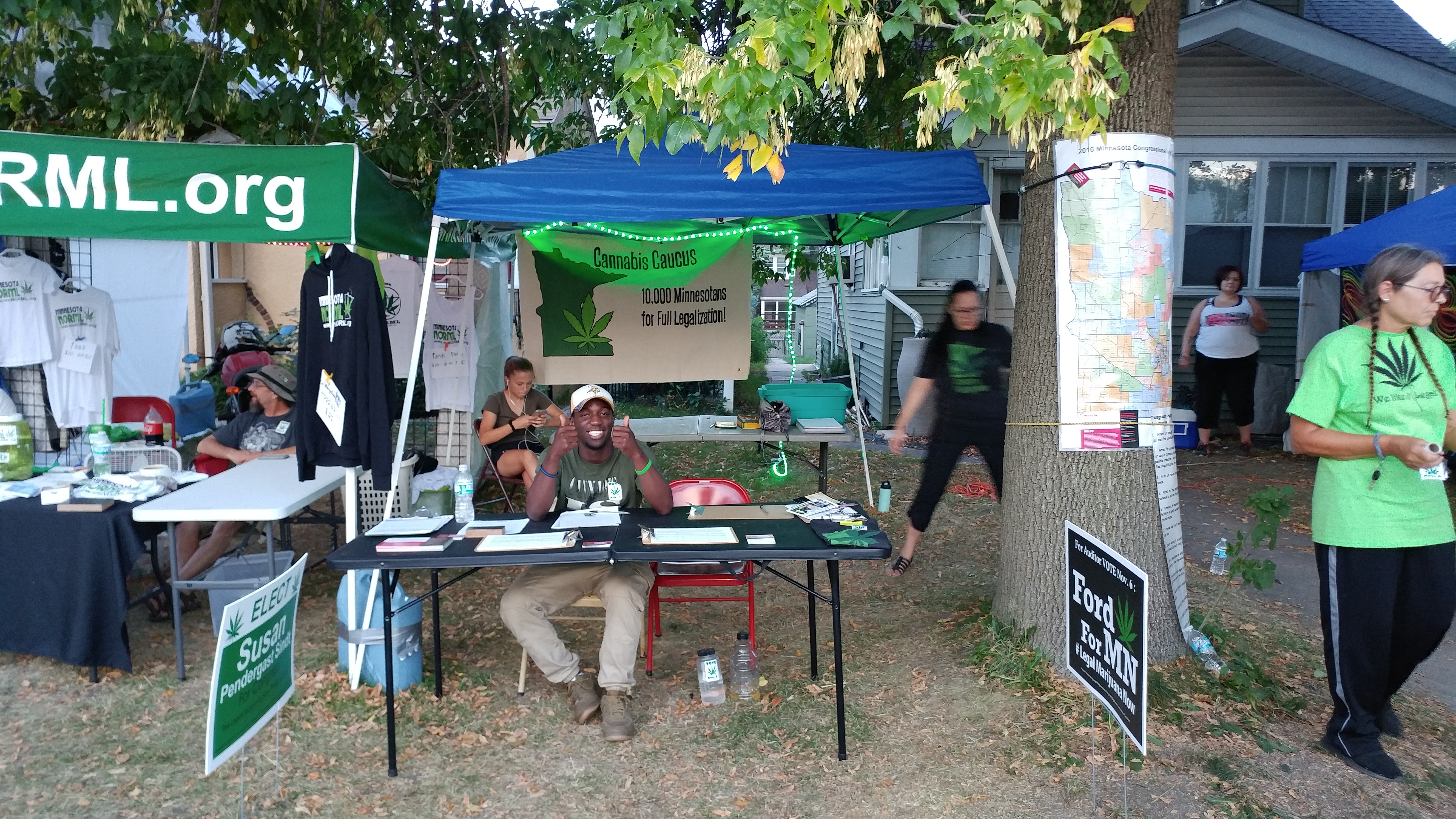

When the prospect of legal, adult-use cannabis in Minnesota seemed far off, the debate focused much more on if we should legalize the plant and less on the how. Cannabis advocates at the Minnesota State Fair encouraged passersby for years to support legalization, not to explore how to create a new regulated industry from the ground-up. Now that legalization seemed to have shifted into the “when” (and not “if”) category in Minnesota, activists and stakeholders throughout the state can begin to explore how our home grown cannabis market should look. Since cannabis was first criminalized in Minnesota in 1935, the impact of the drug war has most significantly impacted individuals of color and those experiencing poverty. To this day, Blacks in Minnesota are 5.4 times more likely to be arrested than their White counterparts for marijuana possession.
A number of states have already taken steps towards legalization, and activists and legislator in many of those states are working to uplift those who were most targeted by the War on Drugs. While individuals throughout the country continue to be arrested for cannabis possession, state and city government are beginning to attempt to undo some of the damage they previously inflicted on their own communities. Despite numerous attempts, some tactics have proven to be more successful than others. For example, incubation programs have proven to be successful at allowing social equity applicants to overcome some of the barriers, such as lack of access to ancillary services. States such as Colorado and Massachusetts claim to be working towards equitable markets, but 75% of cannabis business owners in Denver are white and only three of the 70 social equity applicants in Massachusetts have opened for business.
One major barrier to an equitable market is access to funding, specifically lending with fair terms. The lack of investing capital (which could be solved by the SAFE Banking Act) has created a market of predatory lending for social equity cannabis businesses. “Because of the federal situation around cannabis, it’s really difficult for people to get loans to start up their business,” explained Leili Fatehi, campaign manager for Minnesotans for Responsible Marijuana Regulation. “Especially if you’re looking at people from those communities that have been especially impacted by prohibition,” Fatehi continued, “this has set up all kinds of opportunities for predatory lending.”


Even after securing funding, additional support is needed for social equity businesses to overcome barriers to commercial success. For example, Colorado has an accelerator program that assists new businesses though mentorship programs and financial incentives. The state recently reformed their accelerator program to assist social equity license holders with thriving in the cannabis space. Michigan lowers the cost of entering the program for social equity applicants, but many in the state say it’s not enough. Owner of the Michigan Cannabis Business Development Group, Rick Thompson, said the lack of equitable support is his “single greatest disappointment with the Michigan cannabis industry.”
Action is (slowly) being taken in Washington with the introduction of the Marijuana Opportunity, Reinvestment and Expungement Act, or MORE Act. This would create a federal Cannabis Justice Office with a 5% tax on all cannabis sales nationwide. A Community Reinvestment Program would provide funding for youth programs, job training, and mentorship. It could also provide legal aid for those looking to expunge previous records. “Grim Reaper” Mitch McConnell has indicated he does not support passage of this bill, so manifested action looks unlikely this legislative session.
In Minnesota, lawmakers are looking to create an equitable cannabis market from day one. The legislation to legalize cannabis introduced before the summer recess contained a number of grants looking to open up access to a more diverse pool of license holders. This includes cultivation and startup funding grants, funding for organizations to assist applicants navigate the regulatory framework, and funding to support education programs focused around cannabis.
“These kinds of grant funding programs are important because if we’re going to legalize, we want to be able to set up people for success,” explained Fatehi. But she believes that more can be done to set up Minnesota’s market for success. Activists including Fatehi would be interested in seeing more programs “that are specifically geared towards people who have formerly been incarcerated for cannabis-related offenses.” While Colorado did not include this in it’s original legislation, it is now more politically viable and action was finally taken a week after the murder of George Floyd amid nationwide protests.
“To the extent possible,” said Fatehi, “we’re interested in seeing programs that invest especially in the communities that have been most impacted adversary by prohibition.”
———
Additional Links:
Those looking to learn more about Colorado’s Social Equity program should listen to Episode 36 of the Weed Wonks with Colorado State Rep. James Coleman, which can be found here.
Learn more about the first non-profit business league created to serve the needs of minority cannabis industry workers and consumers, the Minority Cannabis Business Association.
Links to all minority-owned medical cannabis companies in Minnesota can be found below:
